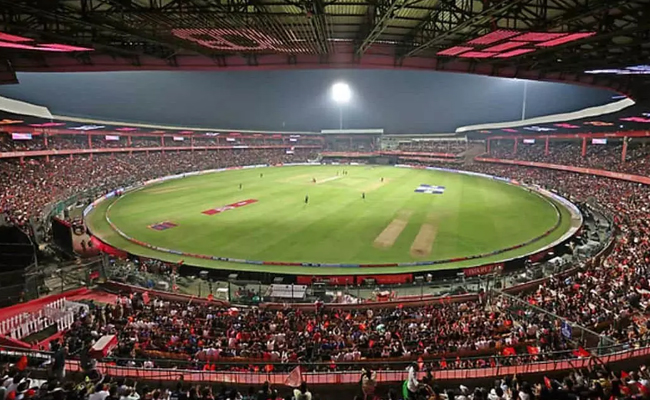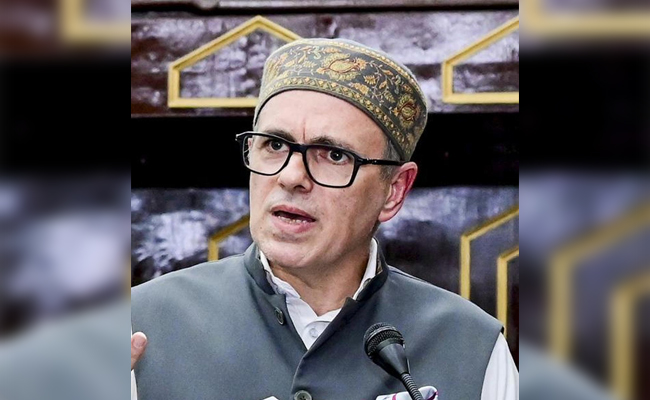Udupi, August 01: The Ministry of Environment and Forest of the Central government has officially declared ‘Blue Flag Certificate’ recognition to the Padubidri beach in the district.
In a statement, deputy commissioner Priyanka Mary Francis and Tourism department assistant director Anitha Bhaskar said that under this programme, it was planned to develop beaches with clean environment and quality water in 13 states which have sea shores, in association with the Society for Integrated Coastal Management (SICOM), Ministry of Environment and Forest, Beach Management Services (BMS). The clean sea shore would decide the healthy tourism and better economic index, they said.
In view of this, the central government has decided to bring sustainable tourism and healthy coastal sea shores under Blue Flag Certificate programme and implement international standard projects, it is said.
Boost for sustainable tourism
The main objective of the Beach Management Services is to encourage the sustainable tourism at Padubidri beach by managing the cleanliness, environmental education and creating awareness to local people, improving quality of water, safety measures, maintenance of security system and sea shore. Along with these factors, priority would also be given to bio-diversity, environment protection, effective solid waste management, basic infrastructure and introducing local food culture and lifestyle to the tourists under this programme, they said.
Sustainable tourism would be encouraged by giving environmental education to the local people, training, campaigning on home stays and others. The programme is being implemented with the help of the district administration, tourism department and local stakeholders. By 2018, it was planned to develop the beach as a quality beach with the help of Foundation for Environmental Education (FEE) of Denmark and people could plan for their holidays.
As per the estimation, Blue Flag Certificate beaches would have annual turnover of over Rs 100 crore. So, it would help the Padubidri beach to make its presence in the international level and attract tourists, they said.
Padubidri beach end point
With the help of this international level project, within 500 mts radius of Padubidri beach endpoint, bio toilets, cloth changing rooms, bath rooms, name boards, jogging track, outdoor gym and children’s play area could be developed. To avoid the usage of plastic water bottle, pure drinking water units, solid waste processing and reuse, dust bins, seating arrangements, wheel chair facility for physically disabled, solar power usage, umbrellas, chairs, CCTV vigilance for round-the-clock, watching tower would be provided. All these works would be taken up at a cost of Rs 8 crore and A to Z Infra Services Private Limited of Gurugrama, selected by the central government, would develop the infrastructure. Along with the basic infrastructure development, the company would take care of the maintenance of the beach for next two years, they said.
Blue Flag recognition
As the Padubidri beach has got the Blue Flag recognition, international tourists would visit the beach. Former minister Pramod Madhwaraj had tried to get this recognition for Padukere beach near Malpe.
Foundation for Environmental Education (FEE) would give Blue Flag recognition for international standard beaches. More than 60 countries including Europe, Africa, Asia, North America, South America and others have got the membership of FEE. Such beaches are the favourite spots for foreign tourists.


Let the Truth be known. If you read VB and like VB, please be a VB Supporter and Help us deliver the Truth to one and all.
Bengaluru (PTI): Defending champions Royal Challengers Bengaluru will play five of their home matches at the M Chinnaswamy Stadium here and the remaining two fixtures at Raipur's Shaheed Veer Narayan Singh International Stadium in the upcoming IPL, the franchise said on Tuesday.
The announcement ended doubts about whether the IPL 2025 winners would be able to play at their home ground, the M. Chinnaswamy Stadium, following the stampede that killed 11 fans after RCB's maiden title win.
Since that tragic indecent, the venue has not hosted any major domestic matches including the Ranji Trophy, Vijay Hazare Trophy or even the Maharaja Trophy KSCA T20.
"This significant development comes after months of hard work and close coordination across all concerned authorities with a common goal of bringing the games back to home ground for the fans," RCB said in a release.
"RCB extends its sincere gratitude to the Government of Karnataka, the Karnataka State Cricket Association and the Karnataka Police for their unwavering guidance, cooperation and support in facilitating the hosting of matches in Bengaluru."
"The collective efforts to ramp up infrastructure and safety measures in time for the IPL season have ensured that the defending champions will play the majority of their home games in their home ground," the franchise added.
The franchise said that the two "home matches" in Raipur will be as "per prior commitment."
RCB CEO Rajesh Menon said the fans deserve to watch their team compete at home.
"The M. Chinnaswamy Stadium is more than just our home ground it is where our identity as a team truly comes alive," he said.
"The energy our fans bring to Bengaluru has always been a driving force for our players, inspiring them through every phase of the game. Our fans have stood by us unconditionally, and they deserve the opportunity to watch their team compete at home."
"After detailed discussions and completing the necessary due process around permissions, we are pleased to confirm that RCB will play five matches in Bengaluru. We sincerely thank the Government of Karnataka, the KSCA, and the Karnataka Police for their support in making this possible," Menon added.





